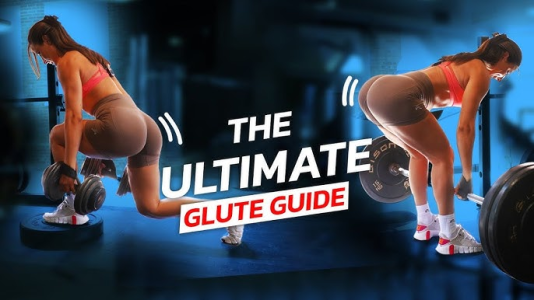ilovebenching
Member
- Squats: A foundational exercise that heavily engages the glutes. Variations include back squats, front squats, and goblet squats.
- Deadlifts:Another powerful compound exercise that targets the glutes, hamstrings, and lower back.
- Sumo Deadlifts: Place your feet wider than shoulder-width apart and turn your toes slightly outward. This variation emphasizes the glutes more than the traditional deadlift.
- Sumo Deadlifts: Place your feet wider than shoulder-width apart and turn your toes slightly outward. This variation emphasizes the glutes more than the traditional deadlift.
- Hip Thrusts: Often considered the "king" of glute exercises, hip thrusts effectively isolate and target the glute muscles. Variations include barbell hip thrusts, dumbbell hip thrusts, and band-resisted hip thrusts.
- Lunges: Work both legs individually, improving balance and stability while effectively targeting the glutes. Variations include forward lunges, reverse lunges, and walking lunges.

- 2. Include Glute-Specific Exercises
- Glute Bridges: Simple yet effective. Lie on your back with knees bent and feet flat on the ground. Lift your hips off the ground, squeezing your glutes at the top.
- Cable Pull-Throughs: Attach a rope to a low cable pulley and pull it through your legs while hinging at the hips.
- Glute Kickbacks: Stand on one leg and kick your other leg back behind you, squeezing your glutes.
- Clamshells: Lie on your side with knees bent. Raise your top knee while keeping your feet together, squeezing your glutes.
- 3. Progressive Overload:
- Gradual Increase: Gradually increase the weight, repetitions, or sets of your exercises to continuously challenge your muscles.
- Example: If you're performing 3 sets of 10 repetitions, gradually increase the weight, perform 3 sets of 12 repetitions, or increase the number of sets to 4.
- 4. Proper Form and Technique:
- Focus on Controlled Movements: Avoid using momentum or swinging the weights.
- Engage Your Core: Maintain a stable core throughout the exercises.
- Consider Working with a Trainer: A qualified trainer can help you learn proper form and technique to prevent injury and maximize results.
- 5. Nutrition and Recovery:
- Consume a Balanced Diet: Include plenty of protein to support muscle growth and repair.
- Prioritize Sleep: Aim for 7-9 hours of quality sleep per night.
- Allow Adequate Rest: Give your muscles sufficient time to recover between training sessions.
- 6. Consistency is Key:
- Stick to a consistent training schedule and prioritize glute-focused exercises 2-3 times per week.
- 7. Be Patient and Persistent:
- Building strong glutes takes time and effort.
- Focus on making consistent progress and celebrate your achievements.